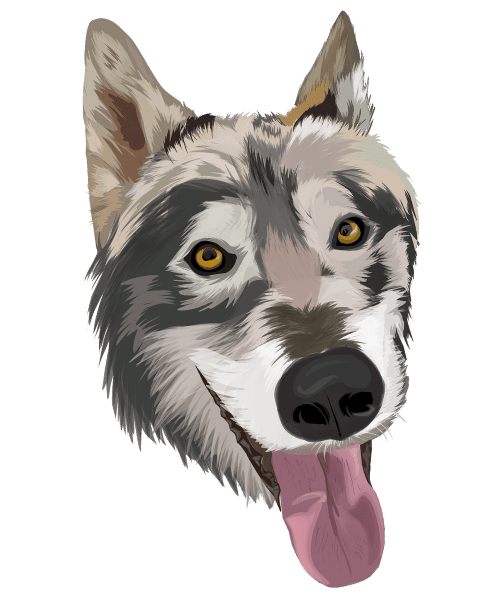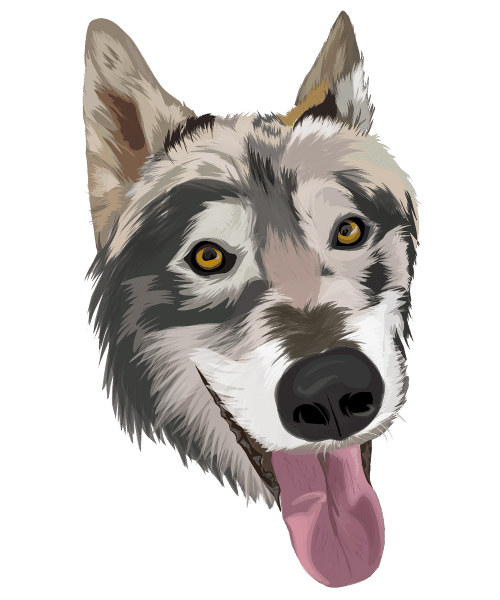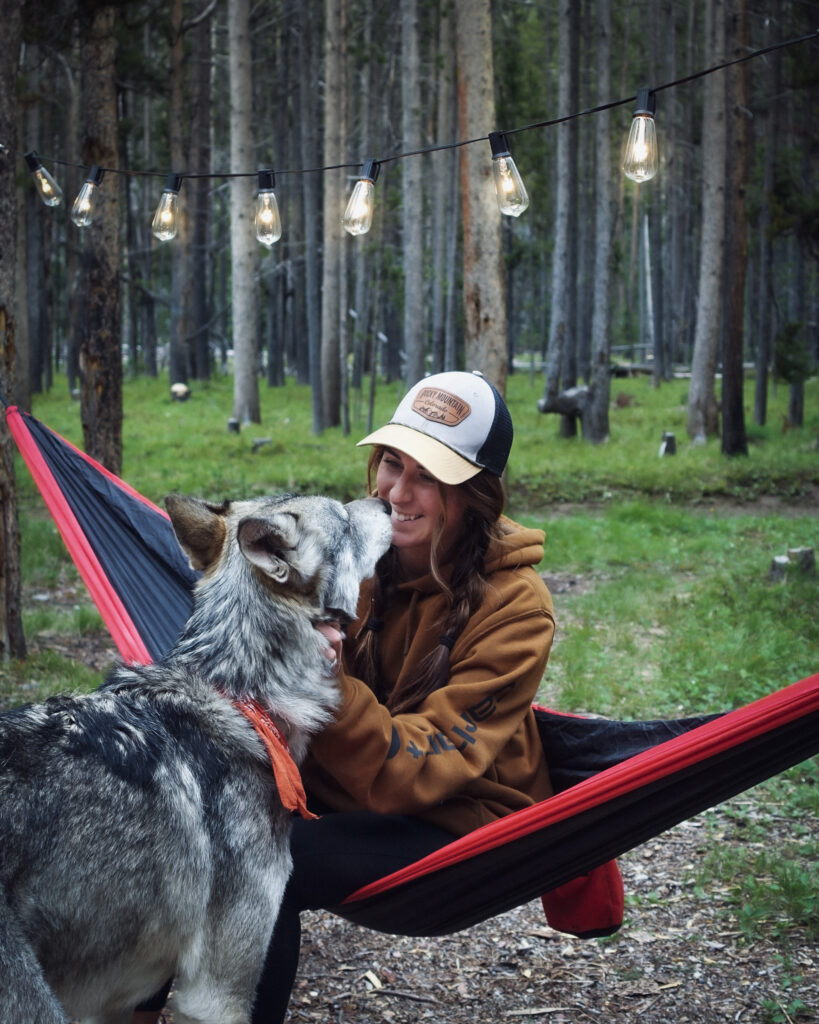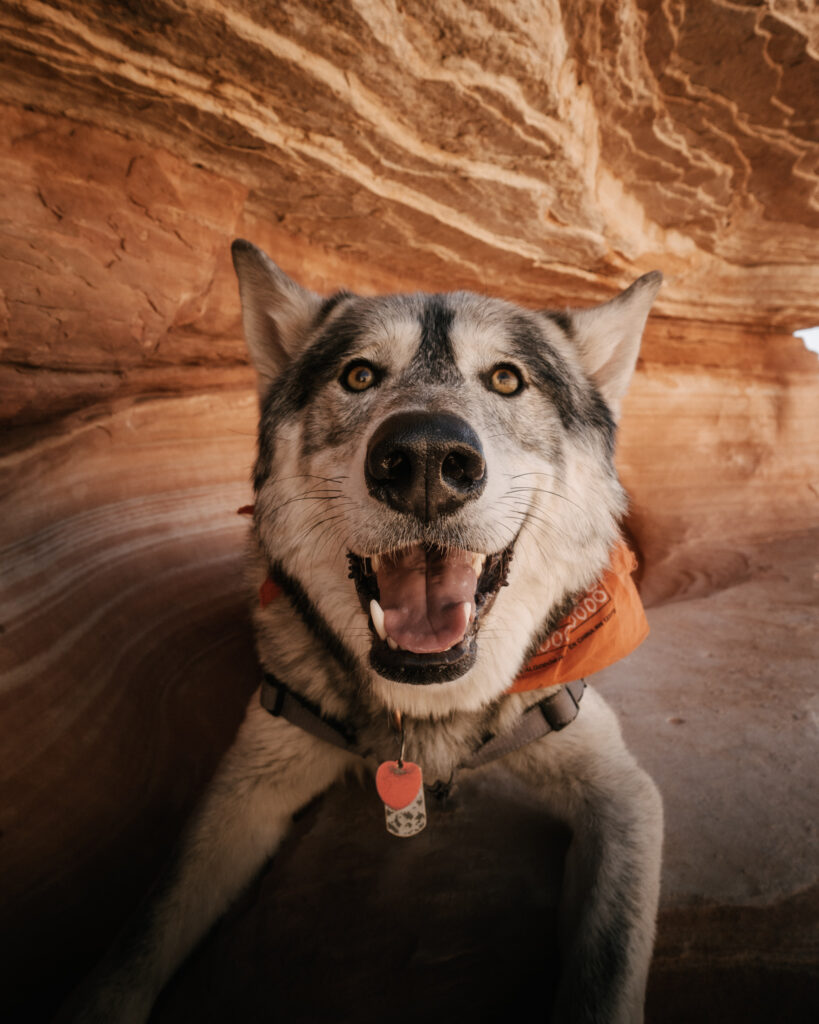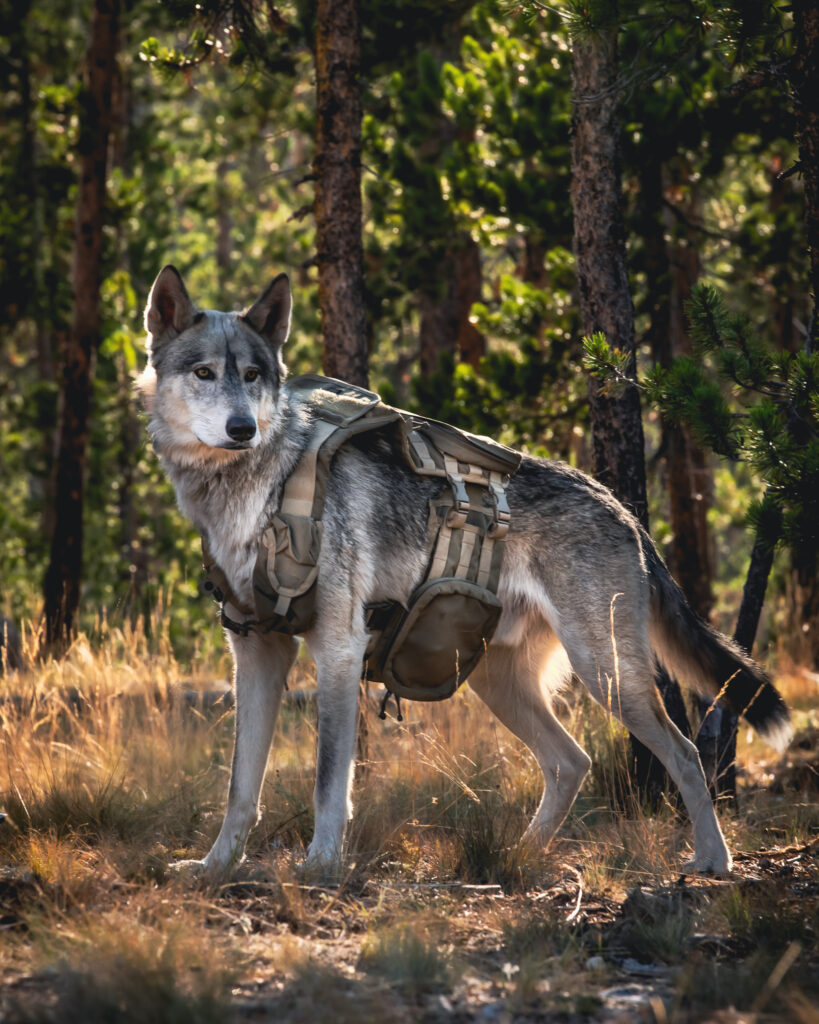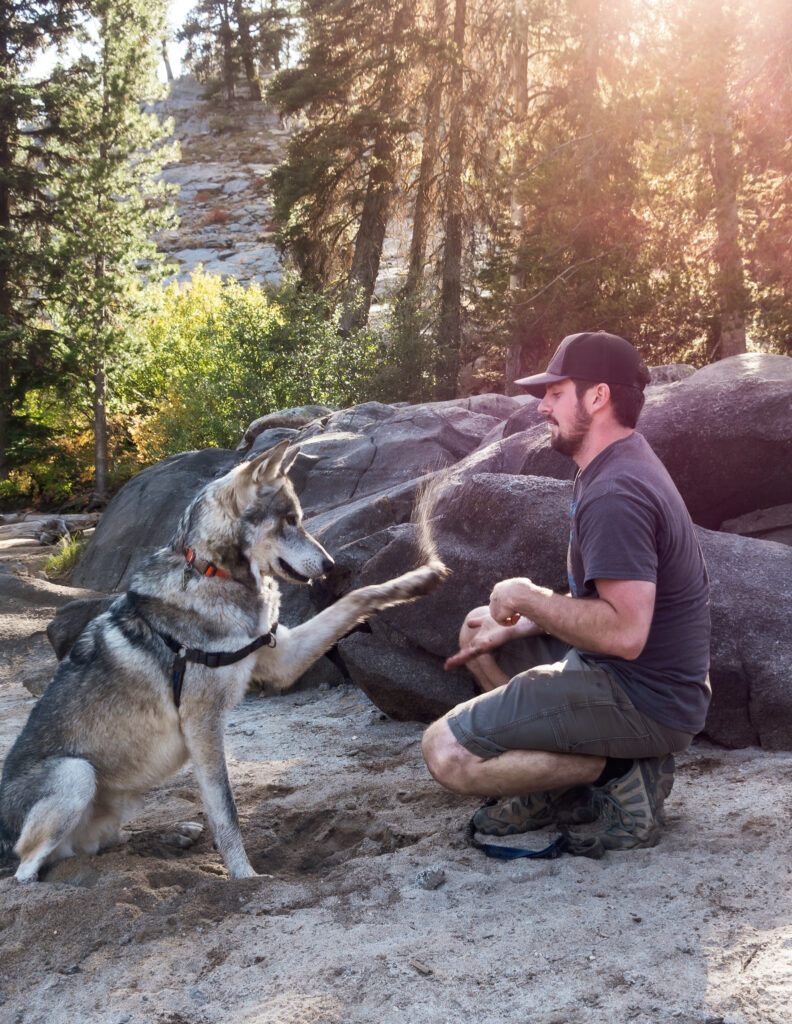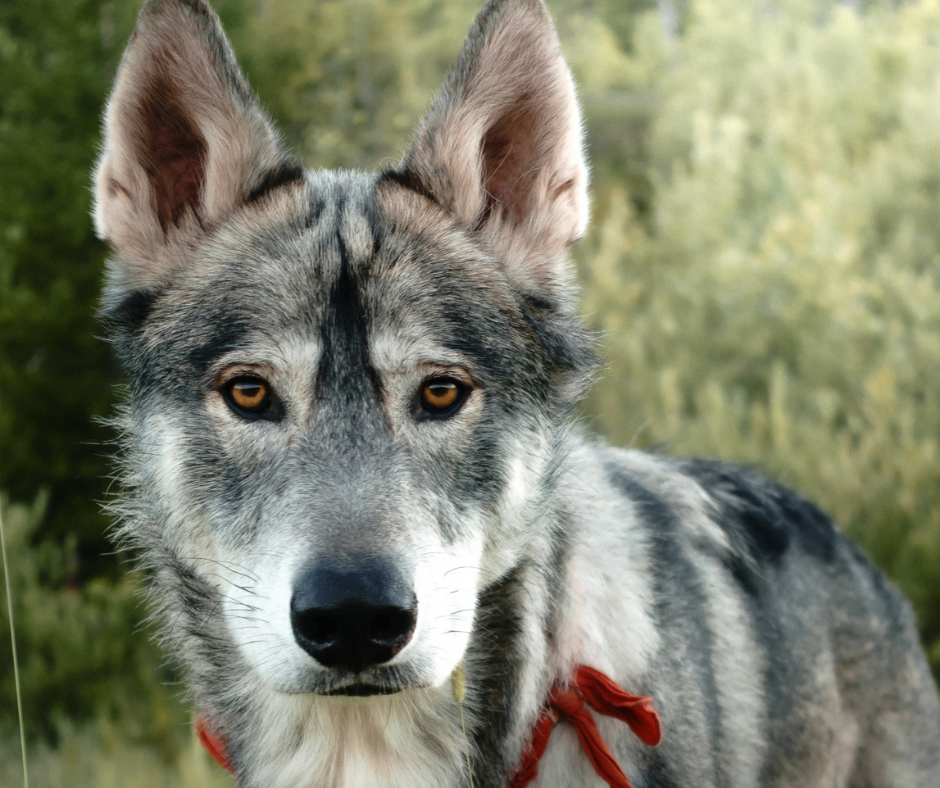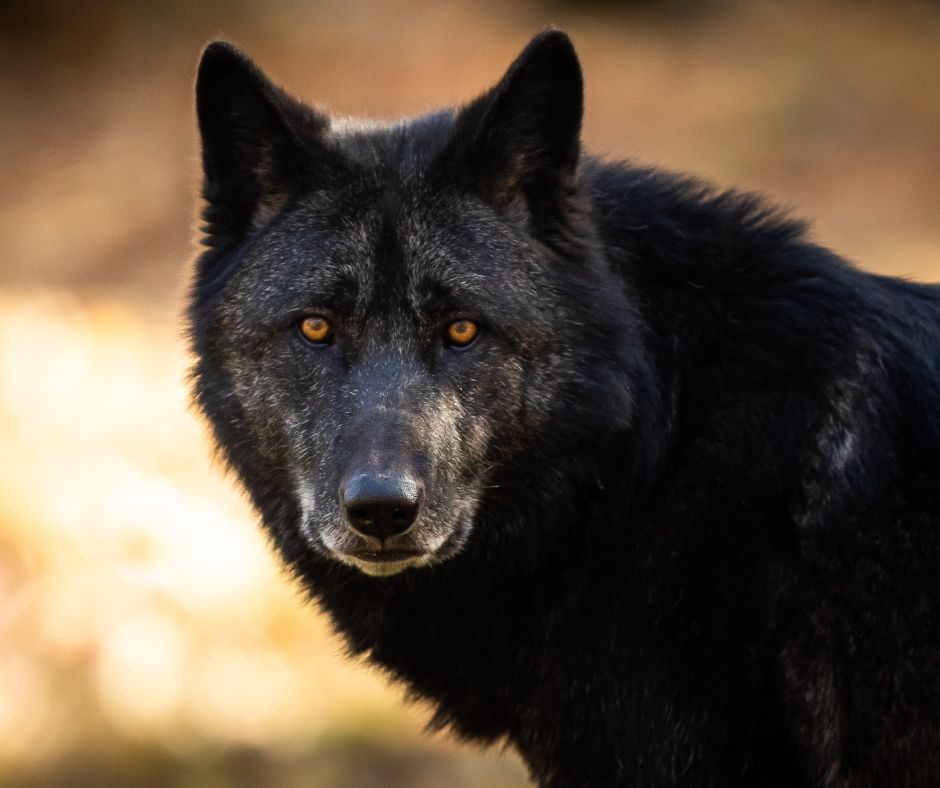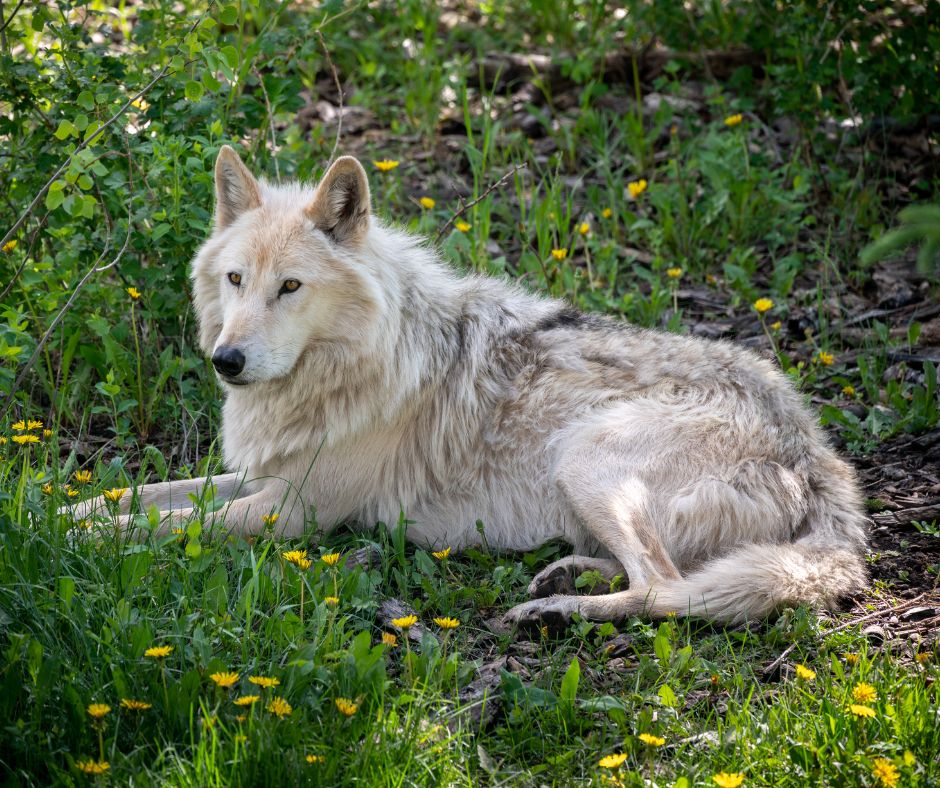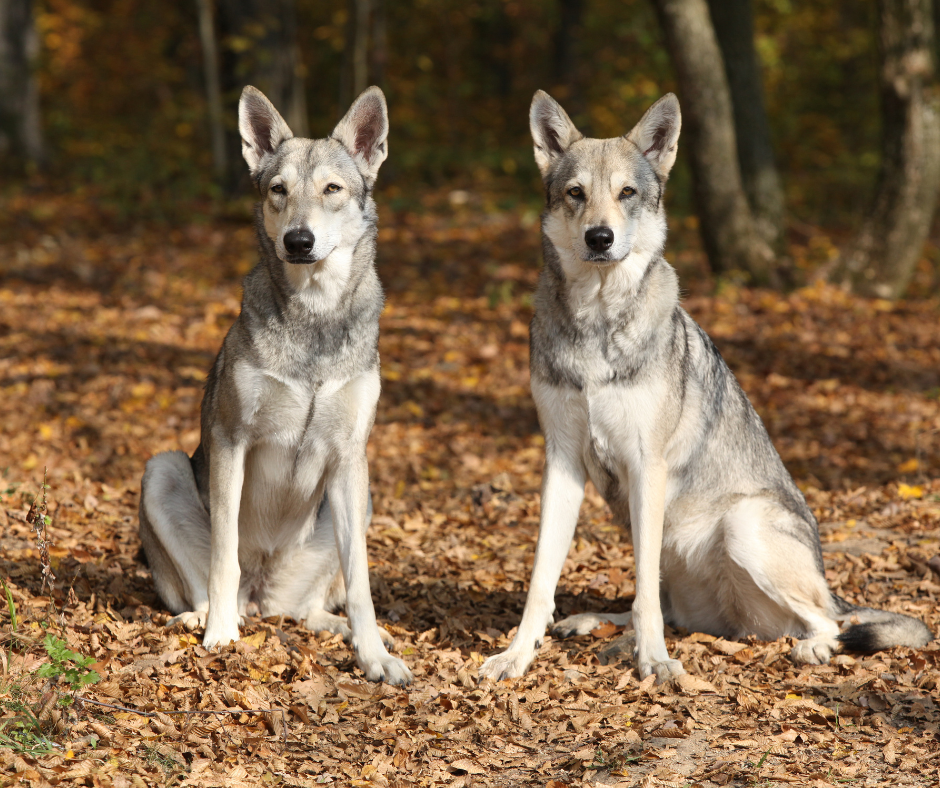Wolf Dog Temperament: Debunking the Myths
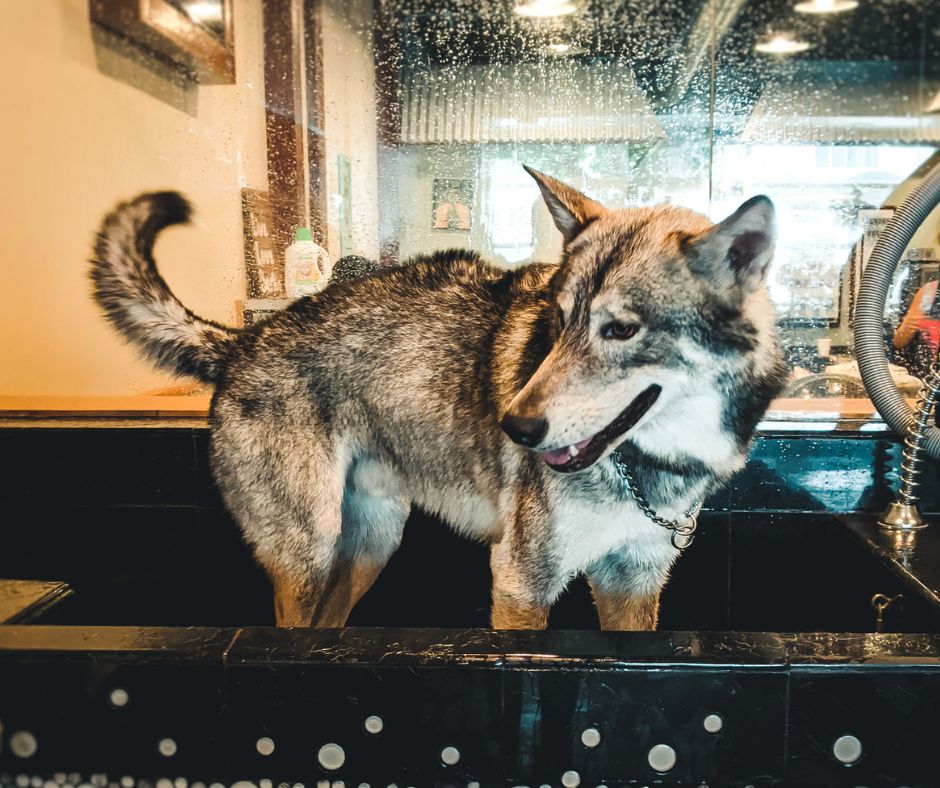
Many people are fascinated by wolf dogs. There is something about their piercing eyes and wild appearance that seems to capture the imagination of people all over the world.
And while some people may view them as as gentle giants that make loyal, loving pets, others view them as unpredictable and dangerous animals that should be avoided at all cost.
Unfortunately, there is a lot of misinformation out there about wolf dog temperament.
So, what’s the truth?
Wolf dogs are intelligent creatures that are often misunderstood. While they may not be suitable for everyone, those who are willing to put in the time and effort to properly care for them will find that they make wonderful companions.
But it’s important to understand wolf dog temperament before you bring one into your home.
In this blog post, we will dispel some of the myths about these animals and give you the truth about their behavior.
Table of Contents
ToggleWhy More Wolf in a Wolf Dog = More Wild Behavior
One factor that can influence an animal’s personality is the percentage of wolf DNA it carries.
In general, wolf dogs with a higher level of wolf DNA are more likely to display feral behaviors. This includes anything from howling to digging holes to chasing wild game.
On the other hand, wolf dogs with a lower percentage of wolf DNA are more likely to be tame and docile.
However, as any pet owner knows, each animal has its own unique personality, and there are always exceptions to this rule.
Understanding Wolf Dog DNA
The percentage of wolf DNA in a wolf dog determines how wild or domesticated the animal is likely to be:
Low-content wolf dogs, which have 50% or less wolf DNA, tend to be the best pets. They are typically friendly and docile, and easier to train than their high-content counterparts. However, they may not have the same striking appearance as high-content wolf dogs.
Mid-content wolf dogs, which have between 50% and 80% wolf DNA, can make good pets, but may still be prone to aggression and skittishness, and can be challenging to train than low-content wolf dogs.
High-content wolf dogs, which have over 80% wolf DNA, are often too wild to be domesticated and make poor pets. They tend to be distrusting of humans, aggressive, and difficult to train.
With this in mind, it is important to do your research before getting a wolf dog, as different percentages of wolf DNA can be better suited for different homes.
The Truth About Wolf dog Temperament
Wolf dog temperament is perhaps one of the most important things to understand before bringing a wolf dog into your home.
If you’re thinking about owning a wolf dog, it’s important to understand that these animals are not like other dogs. They are unique creatures with their own set of behaviors and traits.
Intelligent
When it comes to wolf dogs, intelligence is one of their most defining characteristics.
Unlike other domesticated animals, wolf dogs are able to think and reason like their wild cousins. This allows them to better understand the world around them They are also independent and stubborn.
However, it also means that wolf dogs can be very challenging to live with. They are not naturally submissive, so conventional training methods often don’t work.
Because they are so smart, wolf dogs need a great deal of mental stimulation in order to stay happy and healthy. Without a proper outlet for their intelligence, wolf dogs can become bored and destructive.
Independent
While wolf dogs can be very attached to their human companions, they also have a strong sense of independence.
This means that they’re not likely to be content just hanging around the house all day; they need space to run and explore. If you live in an apartment or don’t have a fenced-in yard, a wolf dog is probably not the right pet for you.
Social Creatures (Pack Animals)
Wolf dogs are pack animals by nature, which means they are very social creatures. They crave companionship and attention and do not do well when left alone for extended periods of time.
Because they are so social, they get extremely anxious when they are away from their pack. This can lead to destructive behavior, such as chewing on furniture or digging holes in the yard.
If you are looking for a low-maintenance pet that you can simply leave in your backyard, a wolf dog is not the right choice for you. However, if you are looking for a pet that will be an active member of your family, a wolf dog may be the perfect fit.
High Energy Levels
Another important consideration when choosing a pet is energy level. Wolf dogs are high-energy animals and require a lot of exercise.
In fact, they often need more exercise than a typical dog due to their high energy levels. If you’re thinking about getting a wolf dog, you should be prepared to spend at least an hour each day working on obedience training and playing games with your pet.
Failing to provide enough exercise can lead to behavioral problems such as excessive howling and destructiveness.
If you live in a small apartment or do not have time for regular walks/runs, a wolf dog is probably not the right choice for you.
However, if you are an active person who enjoys spending time outdoors, a wolf dog will make the perfect hiking or running buddy.
Separation Anxiety
Wolf dogs are highly social creatures, and they form strong bonds with their owners. When left alone, they often become anxious and restless.
As a result, wolf dogs require a great deal of attention and patience. They may also need to be trained to cope with periods of separation.
Keep Reading: 10 Common Wolf Dog Behavior Problems + How to Solve Them
Debunking the Myths
There are a lot of misconceptions about wolf dog temperament.
People seem to think that because a dog has some wolf in them, they must be wild and untamable. This is simply not the case.
In reality, wolf dog temperament can vary just like any other breed of dog. Some dogs may be shy and timid, while others may be more outgoing. It all depends on the individual animal’s genes and upbringing.
We will debunk some of the myths about wolf dog temperament and give you a better understanding of what to expect if you decide to adopt one of these animals.
Are Wolf Dogs Aggressive?
One of the most common misconceptions about wolf dogs is that they are aggressive by nature.
While it is true that wolf dogs can be more aggressive than other domestic breeds, this is typically due to a lack of socialization and training. With the proper care and training, wolf dogs can be just as loving and affectionate as any other pet.
However, it is important to note that wolf dogs can be very protective of their family and home.
If you are considering adopting a wolf dog, it is important to do your research and make sure you are prepared to handle a dog with a strong protective instinct.
Are Wolf Dogs Difficult to Train?
Another common misconception about wolf dogs is that they are difficult to train. Again, this is not true!
With patience and consistency, you can train your wolf dog just like you would any other type of dog.
It is important to start training early, as wolf dogs can be stubborn and independent-minded. However, if you put in the time and effort, you will be rewarded with a well-behaved companion.
Are Wolf Dogs Safe Around Kids?
There is no definitive answer when it comes to whether or not wolf dogs are safe around kids.
Some experts believe that these animals can make excellent family companions that are loving and protecting of children so long as they are properly socialized and trained.
Others caution against keeping wolf dogs in homes with small children, citing the potential for dangerous behavior. Since some wolf dogs have very strong predatory instincts, they may view small children as prey. For this reason, it’s important to supervise any interactions between young kids and wolf dogs very closely.
The key to having a well-behaved wolf dog is to start training and socializing them early, ideally before they reach 6 months old. With proper training and socialization, wolfdogs can make great pets for those who are willing to put in the work.
Final Thoughts
Wolf dogs are often misunderstood. There are many misconceptions about their temperament. But the truth is that wolf dogs are extremely intelligent. They are quick learners and can be trained to do tricks and obey commands.
However, they are also very independent and willful, so it is important to be consistent with training. Wolf dogs are pack animals, so they crave structure and need a strong leader. They are also very social creatures and need to be around other people or animals. Wolf dogs have high energy levels and need lots of exercise. They love to run and play fetch, so it is important to provide them with plenty of opportunities to burn off energy.
Despite their reputation, wolf dogs make great family companions. They are loyal and protective of their owners and make excellent watchdogs.

